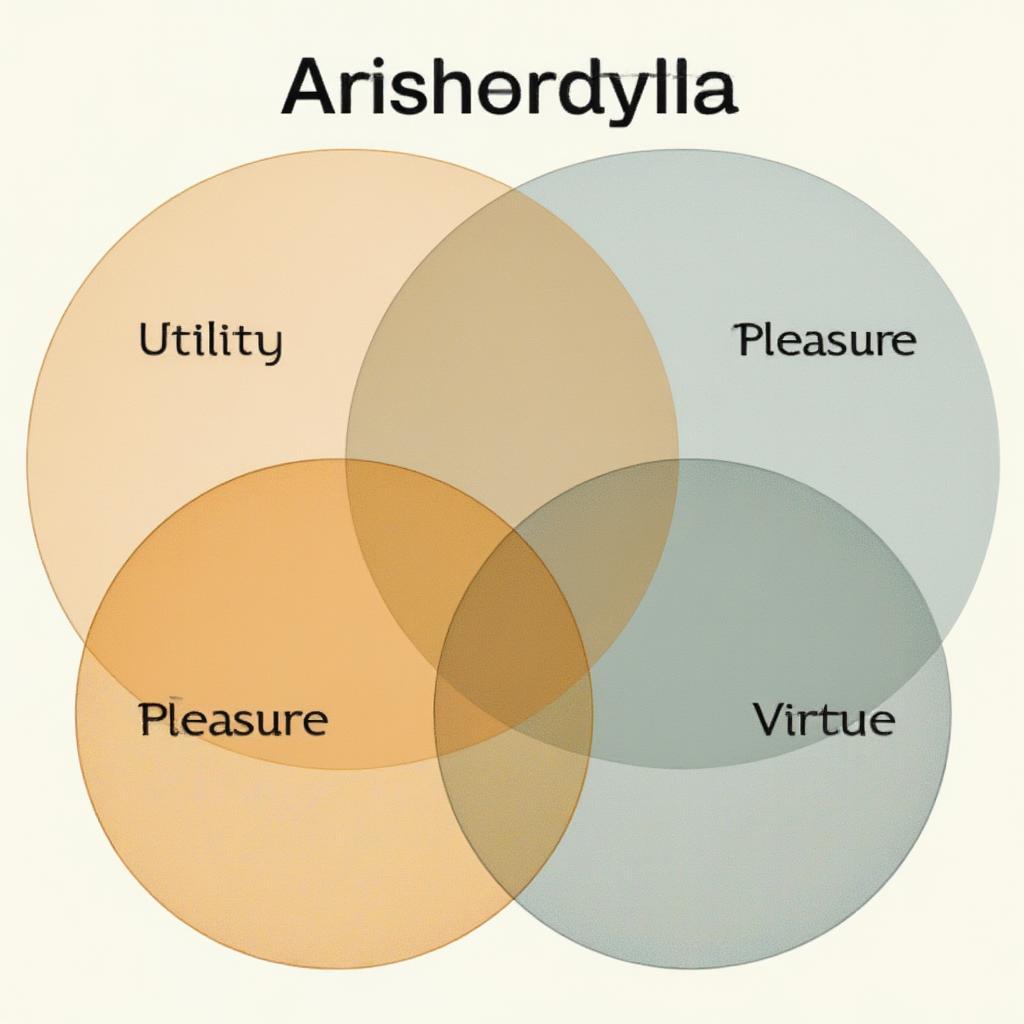Aristotle’s Nicomachean Ethics delves deep into the nature of virtue, happiness, and the good life. While not explicitly a treatise on romantic love, it offers profound insights into love in its various forms, including friendship, familial love, and self-love. Understanding these perspectives can enrich our understanding of love’s complexities and its role in a flourishing life. This article explores key Aristotelian concepts and relevant Nicomachean Ethics quotes on love, offering a nuanced perspective on this fundamental human experience.
Exploring Aristotelian Views on Love and Friendship
Aristotle believed that friendship is essential for a virtuous life. He categorized friendships into three types: utility, pleasure, and virtue. Utility friendships are based on mutual benefit, such as business partnerships. Pleasure friendships stem from shared enjoyment, like those formed through hobbies. True friendship, however, is rooted in virtue. These relationships are characterized by mutual respect, admiration, and a shared commitment to the good. This virtuous friendship, according to Aristotle, is the most complete and enduring, echoing the selfless love we often associate with deeper connections.
 Aristotle's Three Types of Friendship
Aristotle's Three Types of Friendship
Love as a Reciprocal Good Will
Aristotle emphasizes the reciprocal nature of love, particularly in virtuous friendships. He argues that true love involves wishing good for the other person for their own sake, not for any personal gain. This resonates with the idea of selfless love, where the beloved’s well-being is paramount. Nicomachean Ethics quotes on love often highlight this element of goodwill and reciprocity, suggesting that true love fosters mutual growth and flourishing.
Self-Love as a Foundation for Loving Others
Aristotle also addresses the concept of self-love. He distinguishes between proper self-love and narcissistic self-love. Proper self-love involves valuing oneself and striving for virtue, which in turn allows us to love others well. It’s not about egotism, but rather about recognizing one’s own worth and potential for goodness. This self-respect and commitment to personal growth become the foundation for healthy and fulfilling relationships with others.
Love and the Pursuit of Happiness
Aristotle links love to happiness, arguing that true happiness (eudaimonia) is achieved through a life of virtue, which includes cultivating meaningful relationships. Love, in its truest form, contributes to this flourishing by providing support, encouragement, and a sense of belonging. It’s through these connections that we experience the joys and challenges of life, ultimately leading to a richer and more meaningful existence.
Aristotle Nicomachean Ethics Quotes on Love: Practical Applications
While Nicomachean Ethics doesn’t offer specific romantic advice, its insights into love and friendship can be applied to modern relationships. Understanding the importance of virtue, reciprocity, and goodwill can guide us in building stronger and more fulfilling connections.
How Can Aristotelian Concepts Enhance Modern Relationships?
- Focus on shared values: Prioritize relationships with those who share your commitment to growth and virtue.
- Practice reciprocal goodwill: Strive to contribute to the well-being of your loved ones, not just your own.
- Cultivate self-love: Invest in your own personal development to become a better partner and friend.
- Communicate openly and honestly: Foster trust and understanding through clear and respectful communication.
Conclusion
Aristotle’s Nicomachean Ethics provides a framework for understanding love in its various forms. By exploring the concepts of virtue, reciprocity, and self-love, we gain valuable insights into building stronger and more meaningful relationships. Applying these Aristotelian principles can enhance our understanding of love and its crucial role in achieving a truly fulfilling life. Aristotle Nicomachean Ethics Quotes On Love, although not explicitly romantic, offer timeless wisdom applicable to all forms of love, guiding us towards deeper connections and a more virtuous existence.
FAQ
- Did Aristotle write specifically about romantic love? While Nicomachean Ethics focuses broadly on love and friendship, it doesn’t address romantic love directly.
- What is the highest form of love according to Aristotle? Virtue friendship, based on mutual respect and shared values, is considered the most complete and enduring form of love.
- How does self-love relate to loving others? Aristotle believed that proper self-love, rooted in virtue, is essential for loving others well.
- How can I apply Aristotelian principles to my relationships? Focus on shared values, practice reciprocity, and cultivate self-love to build stronger connections.
- Where can I learn more about Aristotle’s philosophy on love? Explore Nicomachean Ethics and other works by Aristotle for a deeper understanding.
Further Exploration
For more insights into love and relationships, explore other articles on DaiDuongTranhBa:
- Navigating the Challenges of Modern Relationships
- The Power of Communication in Love
- Building Self-Esteem for Healthy Relationships
If you need further assistance, please contact us at contact@daiduongtranhba.com or Michigan Ave, Suite 3100, Chicago, IL 60611, USA. Our customer support team is available 24/7.

